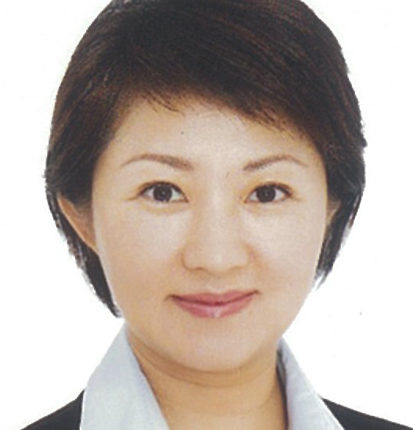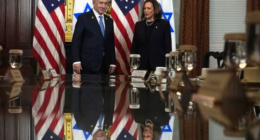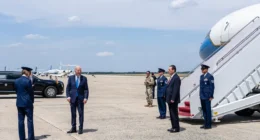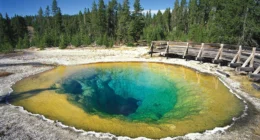In recent weeks, and in what will be the first in a series of interviews planned with mayors around Taiwan, we have been speaking to residents of Taiwan’s second largest city, Taichung, about what matters to them – and have been putting their concerns to the office of city mayor.
In the case of Taichung this is Mayor Lu Shiow-yen.
In her current post since Christmas Day, 2018, the mayor and her staff were kind enough to respond to all questions raised.
These questions and answers are below.
We understand there are concerns at the local level over the National Taiwan Museum of Fine Arts and what will happen regarding the use of the Taichung Prefectural Hall. What rejuvenation plans of historical aspects of the city are in place?
The only national art museum is in the West District of Taichung. The Taichung City Government’s construction of the Taichung Green Museumbrary, started on September 16th, 2019, is also an international art museum.
In response to citizens who wish that the Taichung Prefectural Hall can become a national art museum, or the Second National Taiwan Museum of Fine Arts, the Department of Cultural Affairs has received some advice from the city councilmen and local residents that they prefer sites that can bring economic benefits and lively activities instead of inanimate art museums.
The city government understands that moderations to the Taichung Prefectural Hall must be carefully evaluated because of the wide range of effects that may be brought.
At this moment, discussions about future directions are still being held. In the short term, the government hopes to maintain a certain degree of office use in continuation of its historical significance.
The long-term goal is to revitalize the Prefectural Hall in order to drive the overall development of the surrounding areas.
The restoration project of the Taichung State Hall is scheduled to be completed by the end of 2022.
The city government is currently planning to conduct studies across various fields on future developments of the West Central District and areas surrounding the Prefectural Hall.
Other than the revitalization of the Prefectural Hall, the government also plans multiple seminars and forums to gain knowledge and expertise from professionals and the public that will serve as reference for later restorations of the West and Central Districts.
The city government is also continuously developing regulations on the self-governance of the city’s landscapes, industrial developments, and historical sites.
Mayor Lu made a statement that the Taichung City debt is close to NT$ 120 billion (about 39,000 per person). Will this be a debt she asks the taxpayers to shoulder?
After Taichung City was promoted to a municipality, multiple major constructions were initiated.
The national government allowed the local governments to manage their own financial resources, including taxation, borrowing, and land monetization, etc.
Among these methods, interest is required to borrow, creating the fear of leaving debt for family descendants.
After Mayor Lu took office, she passed a law that generated and stabilized finances for the government, including land expropriation and rezoning, increased local tax collection, and fighting for overall allocation, etc.
Some ways to increase local tax collection are discussed below:
- Steady growth of local tax revenue:
In 2019, the amount of local tax levied by the city is NTD 47.714 billion. This is an increase of NTD 14.626 billion from 1999’s NTD 330.88 billion, with a growth rate of 44.2%.
There has been a growing trend in the past 10 years, and last year (2019), particularly, saw a growth of 9.41%, or NTD 41.05 billion, from 2018’s NTD 436.09 billion, which was a record high.
Finances are the foundation of government, while taxes are the foundation of finances.
Local tax revenue continues to grow in Taichung City, maintaining fiscal stability, which allows for future developments.
- Adjustment of tax bases to reflect housing costs and standard unit prices:
The current value of a house is the basis of the housing tax.
Accurately and objectively assessing the housing tax can appropriately reflect the costs of buildings and construction.
The standard unit price of houses in Taichung City has not been adjusted for more than 30 years since 1984.
In order to reflect the actual construction costs, the Real Estate Evaluation Committee decided on June 16th, 2017 to increase the standard unit price by 60% starting on July 1st, 2018; this does not apply to old buildings.
In 2019, the housing tax increased by more than NTD 66.45 million, and in 2020, it was increased by more than NTD 132.9 million.
Additionally, when new houses are transferred, the tax should be calculated according to the adjusted standard unit price. This measure is expected to generate more than NTD 515 million tax revenue for the city government by April 2020.
- Innovation of the tax inventory through technology, improved skills and efficiency:
Recently, there has been an integrated use of cross-sectional resources.
Aerial photographs, space maps, street view maps, digital house numbers, cadastral maps, Google Earth, and land use survey results have been used to examine tax inventories.
New technological products, such as QGIS, TGOS, and drones, use image location tracking and spatial calculation to improve the efficiency of this inventory.
In 2019, local tax inventories of various taxes will be conducted, and the total tax revenue combined will increase by more than NTD 982.84 million (Table 3).
- Collection of taxes owed through project management:
The city government actively urges taxes owed to be collected, and they also transfer people to be tried for not paying their taxes.
Since the merging of counties and cities, the results of collections of taxes owed have ranked highly among municipalities, including ranking first in 4 consecutive years from 2013 to 2016.
In 2019, the amount of tax arrears reached a new high of NTD 1.011 billion, and Taichung City won 1st place again among the 6 municipalities.
The accumulated tax arrears in the past 10 years have exceeded NTD 7.641 billion.
Air quality remains a serious issue and has not been improved in recent years. What concrete measures is the mayor taking in response?
Through the “Blue Sky and White Cloud Action” plan, the Taichung city government actively implemented 24 diligent countermeasures, including the reduction of coal and carbon by the Taichung Power Plant, the complete abolishment of the coal-fired industrial boilers by 2022, the prevention and control of dust around first-class construction sites, the increased number electric buses and motorcycles, etc., and all have shown positive results.
The average concentration of PM2.5 in Taichung City in 2019 was 17.7 micrograms per cubic meter, which was an improvement of 1.1 micrograms compared to 2018.
In addition, the number of days with bad air quality (AQI>100) was 44 days, which was a decrease of 16 days compared to 2018 and improved by nearly 30%.
Specific methods are discussed below:
- Continue to defend and improve air quality towards a low-carbon and coal-free city:
Through intensive audits, the Taichung Thermal Power Plant has effectively reduced coal, and coal consumption in 2019 dropped by more than 3 million metric tons from 2018, reducing air pollutant emissions.
Additionally, Taichung City actively promotes the full abolishment of coal-fired industrial boilers in 2022, and has guided the industry to switch to low-pollution fuels.
Four factories with 6 boilers have been planned to be converted to gas boilers, which will help improve the air quality in the central region and gradually moves towards a low-carbon and coal-free city.
- Technological monitoring and control to prevent pollution sources from entering:
Enforce scientific technological inspections. Purchase scientific instruments and equipment. Conduct in-depth inspections and sampling tests on environmental commitment conditions, water pollution prevention, air pollution prevention, and waste management. Strengthen joint inspection operations between prosecutors and the police; improve monitoring and evidence collection to combat environmental crimes. Free Taichung from smog and embrace the blue sky.
- Promoting public-private partnership to maintain the air quality by implementing NTD 2 million bonuses for people who report on environmental crimes:
The Taichung City Government implemented the “Taichung City Incentive Measures for Reporting Violations of Air Pollution” on April 8th, 2020 to encourage the public to report on environmental violations. If the report turns out to be a violation and the punishment is more than NTD 100,000, then the whistleblower can receive up to NTD 2 million as a reward.
- Debut of gas-fired boilers to improve problems brought by harmful gases:
There are subsidies, with the maximum being NTD 800,000, created to encourage small and medium-sized factories to implement gas boilers. As of February 2020, 202 companies have applied for the subsidy. To promote the “low-carbon and smoke-free campus plan,” the pollution also fund subsidizes school kitchens. It is expected that all campus boilers in Taichung City will be replaced by natural gas by September 2020, thereby improving the problem of harmful gases.
- Increased number of green vehicles with Taichung City having the most number of electric buses nationwide:
To reduce air pollution from the transportation industry, the Taichung city government has adopted an additional subsidy program that encourages citizens to replace old motorcycles with electric ones. This, along with creating an electric vehicle-friendly environment, has led to remarkable results. The number of electric motorbikes grew by nearly 90% in one year, leading Taichung City to be ranked 3rd in Taiwan.
Furthermore, the Taichung City Government actively promotes green transportation to reduce emissions. From 10 electric buses in 2013, Taichung increased to 182 vehicles in 2019, ranking first in Taiwan and gradually building a low-carbon public transportation system.
- 7 counties and cities in Taiwan organized the “Central Air Pollution Control Office”:
In order to improve the air quality, Mayor Lu, after taking office, instructed the Central Regional Governance Platform to expand the invitation to Hsinchu County, Yunlin County, and Chiayi City. In doing so, she hopes to increase communication between counties and cities in Central Taiwan to discuss air quality issues and to protect the people’s right to breathe.
Since air is circulated, cooperation is needed to effectively combat air pollution. Environmental protection units in 7 counties and cities formed the “Central Air Pollution Control Office” in May 2020, demonstrating the determination of the leaders to work together.
The operations of the office include the promotion of coordination and integration of air pollution control related affairs in 7 counties and cities in the central region.
These activities include joint response assistance for major air pollution disaster events, joint audits across counties, cities, or air quality areas, supervision of air pollution control related work, cooperation with the central ministry to promote air pollution control policies, and implementing other air pollution related measures in these 7 counties and cities.
Other than organizing the central control office, the 7 counties and cities also set up groups on social media to synchronize and maintain communication, allowing for responses to urgent situations and maintaining air quality together.
- The Taiwan Times’ Monica Lee helped with this interview.









